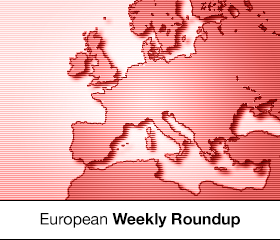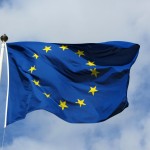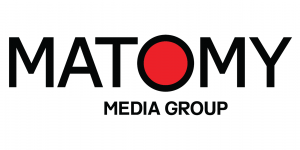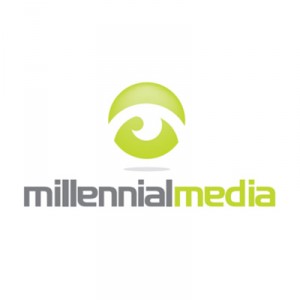ExchangeWire European Weekly Roundup
by on 17th Apr 2015 in News


ExchangeWire rounds up some of the biggest developments in the ad tech space in the last week, and in this week’s edition: WPP drills down on attribution, EU presses Google further, Ad misplacement rears its ugly head in tabloid investigation, Matomy continues acquisition trail, Millennial partners with AudienceScience.
WPP launches attribution consultancy, buys Medialets
Holding group WPP this week made two moves in the attribution space underlining its growing importance in the sector, with the launch of consultancy Gain Theory, plus the purchase of mobile advertising attribution firm Medialets.
WPP announced the foresight consultancy Gain Theory this week, with company claiming it will bring together data, analytics, technology solutions and consumer-insight capabilities to provide clients with faster decisioning making capabilities.
Led by worldwide CEO Jason Harrison, Gain Theory will address this by providing solutions that tackle a set of pain points faced by marketing and insight professionals today in achieving the desired ROI from their marketing activities. These pain points include:
• Difficulty discerning actionable information from an expanding set of data and technology
• Confusion around terminology and jargon
• Multiple answers to a single business question
• The need for faster, smarter predictive insights
The new outfit includes Celina Burnett, Gain Theory, partner, and ExchangeWire contributor. In an earlier post she wrote: "Marketers are investing more in data and analytics than ever before to make sense of an increasingly complex multi-channel world and to draw insight from the huge volumes of data associated with digital customer journeys.
Elsewhere, WPP also announced it has purchased Medialets, a provider of technologies that lets marketers manage and measure the complete return on investment of mobile ad campaigns, for an undisclosed sum.
This acquisition continues WPP's strategy of investing in fast growing sectors such as digital. WPP's digital revenues were US$6.9bn in 2014, representing 36% of the Group's total revenues of US$19 bn. WPP has set a target of 40-45% of revenue to be derived from digital in the next five years.
Earlier in the week, ExchangeWire explored how the lack-click model of attribution was persisting in an era when many claim the model is out of date.
 EU files antitrust charges against Google
EU files antitrust charges against Google
The EU this week announced it has kicked off a formal investigation into Google after sending it a statement of formal objections to Google claiming it has abused its dominant position in the markets for general internet search services in the European Economic Area (EEA) by systematically favouring its own comparison shopping product in its general search results pages.
EU Commissioner in charge of competition policy Margrethe Vestager, said:"In the case of Google, I am concerned that the company has given an unfair advantage to its own comparison shopping service, in breach of EU antitrust rules. Google now has the opportunity to convince the Commission to the contrary. However, if the investigation confirmed our concerns, Google would have to face the legal consequences and change the way it does business in Europe."
On a related note, Yahoo and Microsoft this week also announced they were to make amendments to their search partnership.
The update includes improvements in two core areas. First, Yahoo will now have increased flexibility to enhance the search experience on any platform, since the partnership is non-exclusive for both desktop and mobile. Yahoo will continue to serve Bing ads and search results for a majority of its desktop search traffic.
Second, the update increases agility and sales focus. Microsoft will become the exclusive salesforce for ads delivered by Microsoft's Bing Ads platform, while Yahoo will continue to be the exclusive salesforce for Yahoo's Gemini ads platform. Integrating the sales teams with those responsible for engineering will allow both companies to service advertisers more effectively. Microsoft and Yahoo plan to begin to transition managed advertiser sales responsibilities this summer.
The Commission has also formally opened a separate antitrust investigation into Google's conduct as regards the mobile operating system Android. The investigation will focus on whether Google has entered into anti-competitive agreements or abused a possible dominant position in the field of operating systems, applications and services for smart mobile devices.
Google has since responded to the latter charge with a blog post claiming: "We are thankful for Android’s success and we understand that with success comes scrutiny. But it's not just Google that has benefited from Android's success. The Android model has let manufacturers compete on their unique innovations. Developers can reach huge audiences and build strong businesses. And consumers now have unprecedented choice at ever-lower prices. We look forward to discussing these issues in more detail with the European Commission over the months ahead."
UK tabloid newspaper The Sun – the largest daily newspaper in the UK – this week raised further public awareness over ad misplacement, with an exposé that highlighted how tier one brands' ads were appearing on websites promoting undesirable content.
Running with the headline: "Sun investigates sleaze blunder", the tabloid newspaper relayed how brands including: British Gas, Royal Ascot and O2, were inadvertently funding websites promoting undesirable conduct.
The story will no doubt bring more emphasis on content verification tools among brand-side marketers, and has led providers of such technologies to speak out on the matter. Niall Hogan, Integral Ad Science, MD, UK said: "This kind of publicity must be distressing for these brands and it is important that everyone employed on their behalf; from the sellers of media, through to exchanges, SSPs, DSPs, agency trading desks, media agencies, buyers and tech vendors are all working on their behalf to stop their ads appearing next to inappropriate content.
"Blocking technology exists, and my first instinct when I see an article like this is to ask, 'Is the brand working with a CV (content verification) vendor?' If they are, did the brand or their representatives have the blocking capabilities turned on or were they simply monitoring?
"We see many instances where buyers only choose to use the basic monitoring tool set because they feel that the full suite is cost prohibitive. We are talking about a difference in pennies in the CPM here, not pounds, and I am sure that each of the brands singled out in the article would happily pay a small difference for the full blocking capabilities of the technology now."
Richard Foan, JICWEBS, chairman, added: "This is precisely why JICWEBS, through the work of the Digital Trading Standards Group (DTSG), started awarding brand safety seals to companies who declare and independently verify how their processes significantly minimise the chances of ads appearing next to inappropriate content.
"JICWEBS publishes an up to date list of these companies to help support advertisers in choosing a supplier who's compliant. As of today, 41 co's have signed-up and 33 have been verified. JICWEBS’ work is based on ISBA’s call for advertisers to check with their suppliers that they're compliant."
 Matomy continues acquisition trail
Matomy continues acquisition trail
Israel-based Matomy has announced it is continuing its acquisition trail with the revelation it has agreed to acquire a 70% interest in performance email marketing and ad targeting company Avenlo, the second purchase it has taken part in post its strategic relationship with Publicis Groupe.
Matomy, a performance marketing outfit, this week revealed it has agreed to acquire a majority stake in Avenlo, with the option to acquire the remaining 30% of the company over the next three years. Through this investment, Matomy will enhance its existing email acquisition marketing capabilities, while also providing its clients with cross-device ad targeting and data management solutions.
Avenlo will continue to be led by its co-founders — Rafael Alter, Chris DeDiego and Joseph Freiman — who will work in synergy with Matomy’s global management team.
Ofer Druker, Matomy, CEO, said: “One of our strategic priorities is to invest in companies that will further build the growth and value of our business. Avenlo has developed proven innovative technologies and solutions to email acquisition marketing, ad targeting and data management that will help fuel further growth in these important areas of our business.
Last October Publicis Groupe announced that it had acquired 20% of Matomy for approximately £40m, with an option to increase its stake in the company to 24.9%, that would raise the value of the deal to £51m. This deal was quickly followed by the announcement of its purchase of its mobile programmatic advertising firm MobFox, in a deal worth $17.6m.
 Millennial Media & AudienceScience pair up
Millennial Media & AudienceScience pair up
Mobile advertising firm Millennial Media and data-led advertising firm AudienceScience this week announced they would partner to provide advertisers with access to Millennial Media’s premium programmatic inventory.
The deal means AudienceScience customers will will be able to buy premium inventory programmatically via the Millennial Media Exchange. Mike Peralta, AudienceScience, said: “We are dedicated to providing our customers with the greatest media buying opportunities across the digital landscape,” said “Millennial Media's tremendous mobile expertise, programmatic chops and premium mobile inventory enables our customers to reach consumers on the devices they use most.”
The Millennial Media Exchange powers real-time auctions, private marketplaces and programmatic direct deals, according to the company. Earlier in the week, Paul Gubbins, Millennial Media, head of programmatic, EMEA, spoke with ExchangeWire about the challenges with purchasing mobile inventory via programmatic technology ahead of his appearance on an ATS Paris panel that will address the same subject.
Ad VerificationAdvertiserAgencyattributionCross-ChannelDigital MarketingDisplayEMEAMedia SpendMobileTrading









Follow ExchangeWire